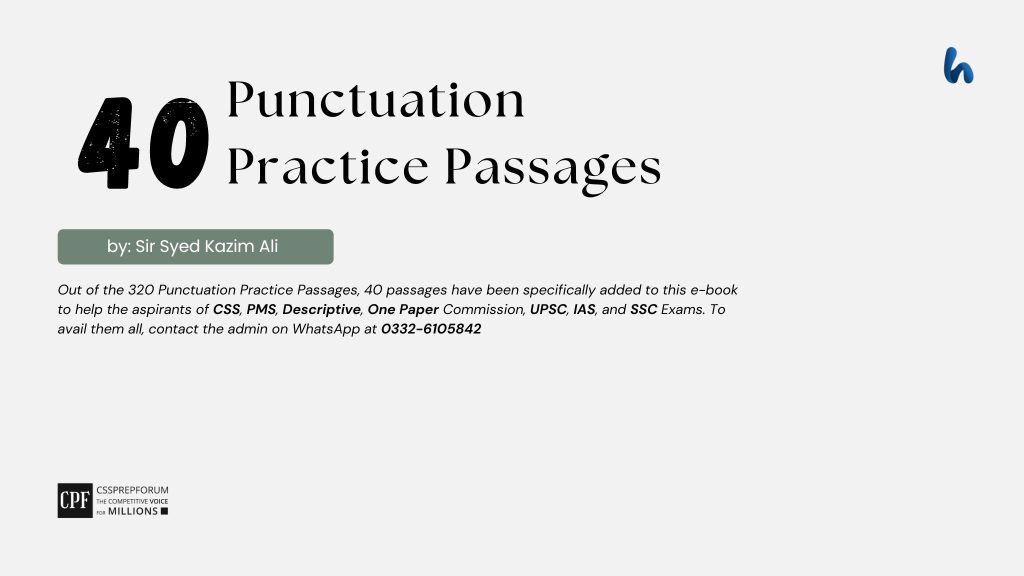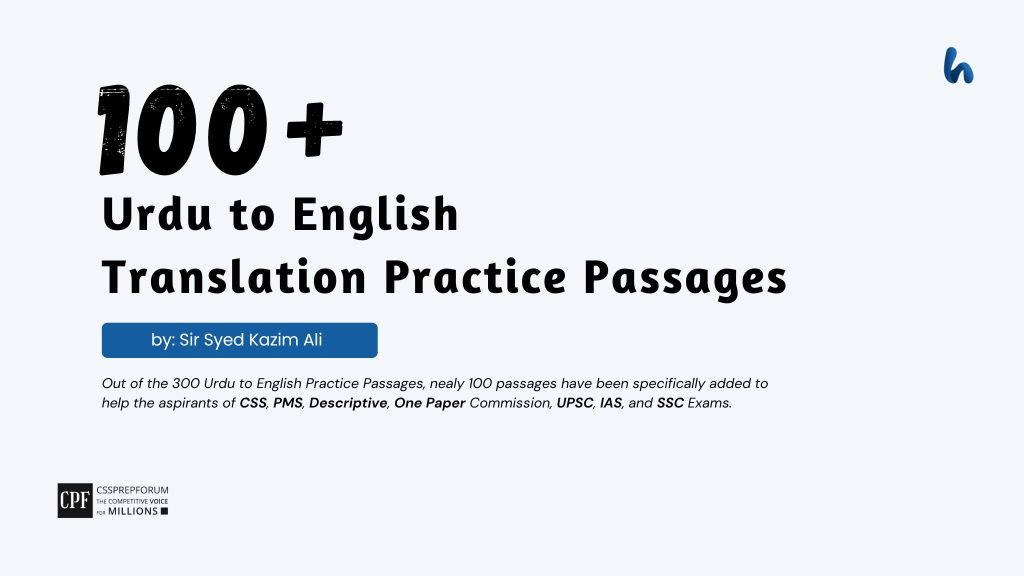Nida Muneer, a Sir Syed Kazim Ali student, has attempted the Civil Judge KPK 2009 Five Paragraph Essay “Electoral Reforms in Pakistan“ on the given pattern, which Sir Syed Kazim Ali teaches his students. Sir Syed Kazim Ali has been Pakistan’s top English writing and CSS, PMS essay and precis coach with the highest success rate of his students. The essay is uploaded to help other judiciary and competitive aspirants learn and practice essay writing techniques and patterns to qualify for the essay paper.

Electoral Reforms in Pakistan
Outline
1-Introduction
Electoral reforms in Pakistan are essential to ensuring free, fair, and transparent elections, strengthening democracy, and restoring public trust in the electoral process. Addressing issues such as electoral fraud, political interference, weak election laws, and lack of accountability can lead to a more democratic and credible political system.
2-Issues in Pakistan’s Electoral System
- Pakistan’s electoral system faces several challenges, including electoral fraud, weak institutional oversight, and voter suppression.
- Evidence: According to the Free and Fair Election Network (FAFEN, 2023), 30% of polling stations in the last general elections reported irregularities.
3-Need for Electoral Reforms in Pakistan
3.1-Ensuring transparency and participation
- Electoral reforms are essential for transparency, voter participation, and fair elections.
- Evidence: India and Brazil successfully reduced electoral fraud with EVMs (International Electoral Studies, 2022).
3.2-Independent Election Commission
- Strengthening the ECP ensures unbiased elections.
- Evidence: In democratic nations, independent election commissions prevent political interference (Global Democracy Index, 2023).
3.3-Ensuring Accountability and Fair Representation
- Electoral reforms should focus on campaign finance transparency and inclusive representation.
- Evidence: Transparency International (2024) states that strict finance laws ensure fair elections.
3.4-Fair Representation of Women and Minorities
- Women and marginalized communities lack political representation.
- Evidence: Women hold only 20% of seats in Pakistan’s National Assembly (Pakistan Bureau of Statistics, 2023).
4-Conclusion

The Essay Begins Below!
Free and fair elections are the cornerstone of any democratic system, yet allegations of vote rigging, political interference, and administrative irregularities have long marred Pakistan’s electoral process. These issues have led to public distrust, political instability, and weakened democratic institutions. According to the Free and Fair Election Network (FAFEN, 2023), 30% of polling stations in the last general elections reported irregularities, highlighting the urgent need for reforms. In fact, a transparent and credible electoral system ensures political stability and public confidence. Therefore, Pakistan must implement electoral reforms that address voter fraud, strengthen election laws, and enhance institutional accountability to secure the integrity of its democratic process.
To begin with, Pakistan’s electoral system suffers from serious flaws, including electoral fraud, weak institutional oversight, and voter suppression. One of the most significant challenges is vote rigging and electoral fraud, which undermines the credibility of elections. Political parties and candidates have been accused of manipulating results through fake votes, ballot stuffing, and result tampering. According to the Free and Fair Election Network (FAFEN, 2023), irregularities were reported in 30% of polling stations during the last general elections. Such fraudulent practices discourage voter participation and erode public trust in the democratic process. Additionally, weak election laws and institutional oversight further contribute to electoral malpractice. The Election Commission of Pakistan (ECP) lacks the authority to take strict action against election violations, allowing political interference and misconduct to go unchecked. When electoral institutions are weak and unable to enforce regulations effectively, elections fail to reflect the people’s true will, leading to political instability.
In addition to addressing electoral fraud, Pakistan must implement comprehensive electoral reforms to increase transparency, enhance voter participation, and ensure fair representation. One of the most effective reforms would be the introduction of electronic voting and biometric verification. Many countries, such as India and Brazil, have successfully reduced electoral fraud by using electronic voting machines (EVMs) and biometric verification systems. These technologies prevent fake voting, eliminate ballot stuffing, and ensure that each vote is accurately recorded. Furthermore, strengthening the Election Commission’s independence is essential for fair elections. In many democratic countries, independent election commissions enforce strict electoral regulations and prevent political interference. If Pakistan’s ECP is granted greater autonomy and enforcement powers, it can be more effective in conducting free and fair elections. Without these reforms, the integrity of Pakistan’s electoral system will remain in question.
Most importantly, electoral reforms must promote accountability and ensure all citizens’ fair political representation. One critical area that needs reform is campaign financing and political funding. Unregulated campaign financing allows wealthy candidates and political parties to gain an unfair advantage, reducing competition and transparency. According to Transparency International’s 2024 Report, in developed democracies, strict campaign finance laws limit corporate influence in elections and ensure a level playing field. If Pakistan enforces similar financial transparency measures, it can prevent corruption and ensure fair competition in elections. Additionally, electoral reforms must promote the inclusion of women, minorities, and marginalized communities. Despite progress, women’s political participation in Pakistan remains low, with only 20% representation in the National Assembly, per Pakistan Bureau of Statistics. Increasing women’s representation and ensuring fair access to political participation for all groups will strengthen democracy and make elections more inclusive. A truly representative democracy is only possible when all voices are heard in the political process.
In conclusion, Pakistan’s electoral system faces serious challenges, including electoral fraud, weak oversight, and a lack of political inclusivity. Without reforms, elections will continue to suffer from manipulation, political interference, and public distrust. However, introducing electronic voting, strengthening the Election Commission, regulating campaign financing, and promoting fair representation can help create a more transparent and democratic electoral system. Countries with strong electoral laws and independent election commissions experience greater political stability and public trust. If Pakistan fails to implement these necessary reforms, its democracy will remain vulnerable to instability and corruption. Therefore, electoral reforms are essential for ensuring free, fair, and credible elections, strengthening Pakistan’s democratic foundations for the future.

Click on Any to Start Reading



FAQs About Sir Syed Kazim Ali

CSS Solved Past Papers’ Essays
Looking for the last ten years of CSS and PMS Solved Essays and want to know how Sir Kazim’s students write and score the highest marks in the essays’ papers? Then, click on the CSS Solved Essays to start reading them.
CSS Solved Essays
CSS Solved General Science & Ability Past Papers
Want to read the last ten years’ General Science & Ability Solved Past Papers to learn how to attempt them and to score high? Let’s click on the link below to read them all freely. All past papers have been solved by Miss Iqra Ali & Dr Nishat Baloch, Pakistan’s top CSS GSA coach having the highest score of their students. General Science & Ability Solved Past Papers











